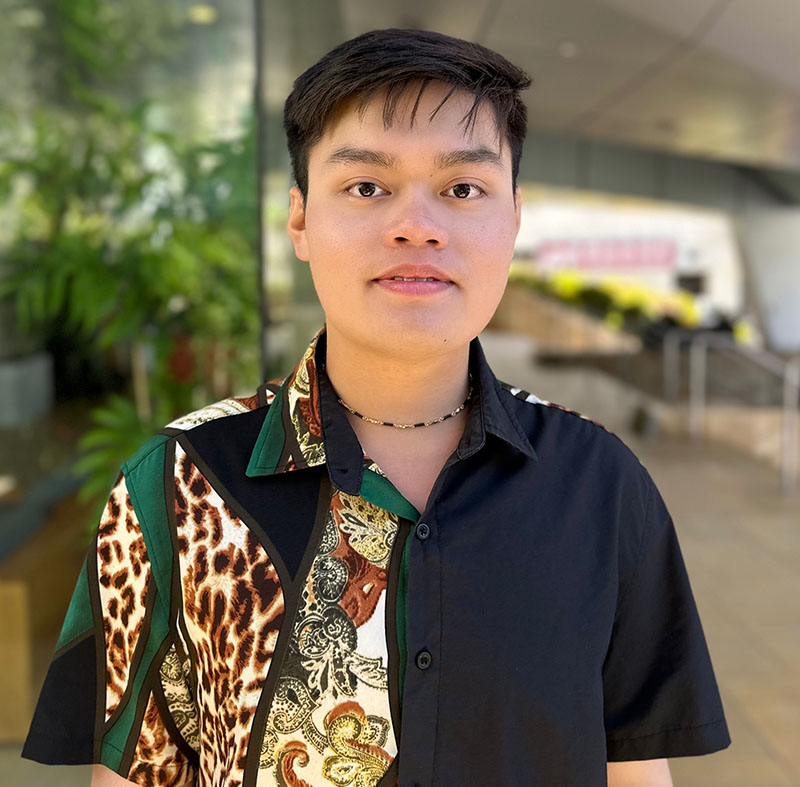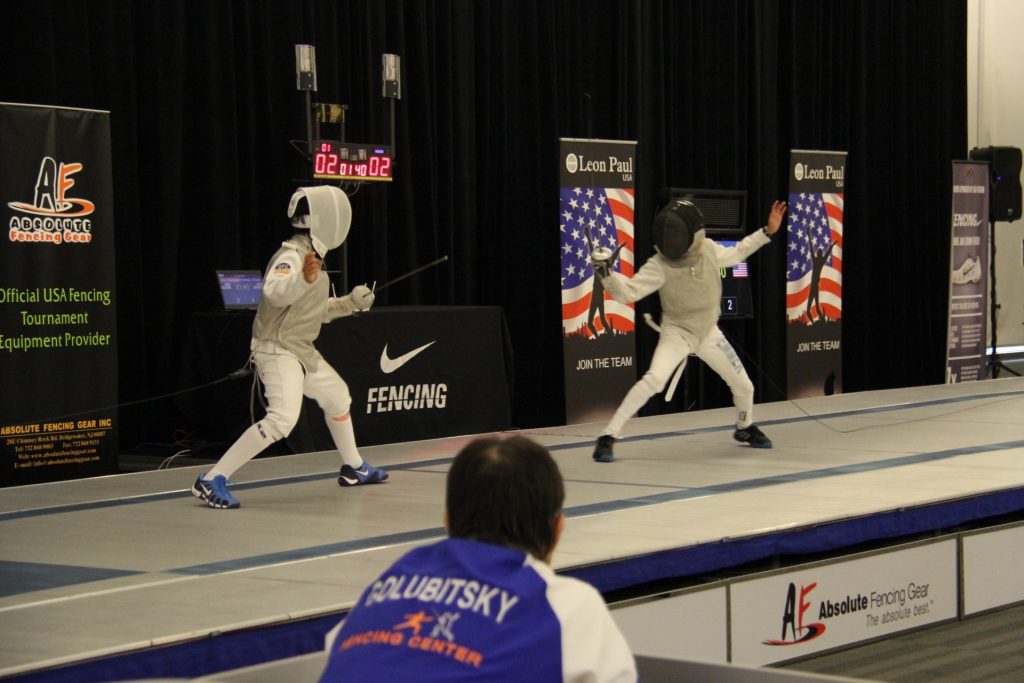
As the clock strikes 6 a.m. at Stanford University, Alexander Jeon is already up, preparing for his day with the precision and focus that define both his athletic and artistic pursuits. Though the four-time, first-team USA Fencing All-American has yet to bring his singing talents to Stanford’s stages, Jeon, a freshman, is already making a mark with his fencing skills, wielding his épée with the finesse and intensity of a seasoned competitor.
To earn the USA All-American title four times, Jeon needed to uphold a specific grade point average and consistently renew an A rating, which represents the highest ranking in competitive fencing.
“Being a fencer is meaningful to my life because it is such an honest sport in the sense that it is very easy to see when you put in hard work and when you don’t,” the 19-year-old said. “I think that it helped me develop regiment and dedication to something, as it is hard to compete well if others put in more time and effort.
Balancing his rigorous academic schedule with competitive fencing, the classically trained tenor maintains the discipline of an elite athlete while nurturing a deep passion for music.
Standing at 5-foot-7, Jeon’s hardworking persona contrasts sharply with his relaxed fashion sense, often seen in running shorts paired with oversized T-shirts and adorned with chains or necklaces.
Hailing from Orange, California, where he attended the Orange County School of the Arts, Jeon’s journey is one of meticulous balance and discipline. This young athlete and artist has not only represented the U.S. at the International European Circuit Cadet World Cup in Budapest, Hungary, but is also certified as a USA Fencing referee, and was the lead singer for a barbershop quartet in high school.
Jeon’s introduction to fencing occurred when he was watching the 2012 London Olympics with his family in his living room on TV.
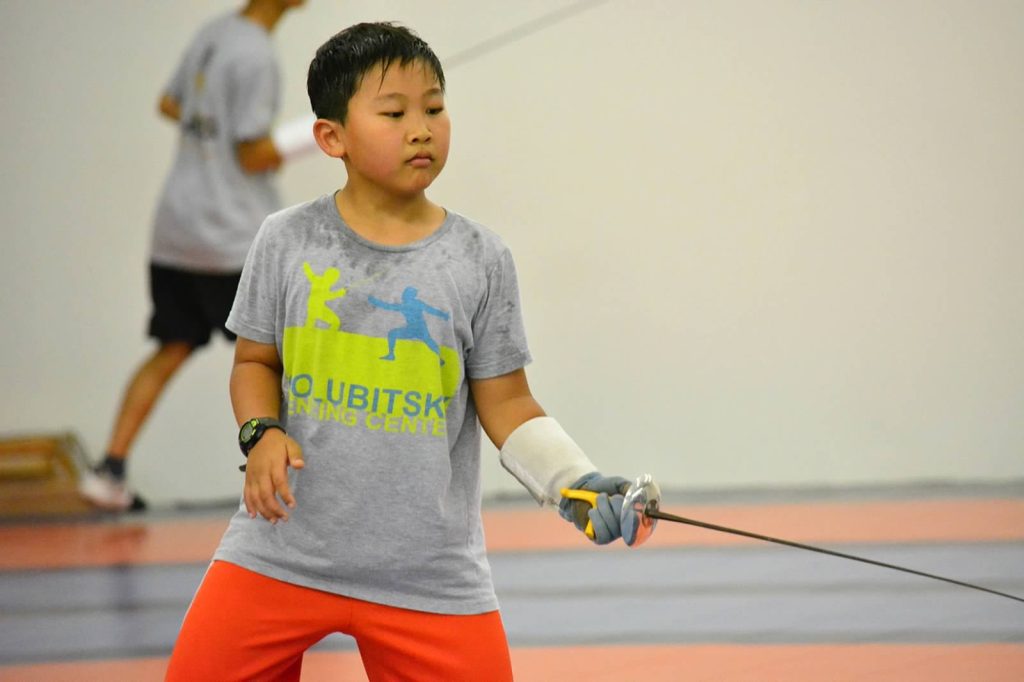
Mesmerized by the grace and intensity of Korean fencer Choi Byungchul competing in the semifinals, young Jeon felt an immediate connection to the sport. Byungchul won the bronze medal in men’s foil that year.
Propelled by his newfound fascination, Jeon joined a local fencing club with his father, turning what started as a casual interest into a serious pursuit of mastery in the art of épée at the age of eight.
“This meant training and fencing 15 to more than 20 hours each week, driving and flying everywhere in the country to tournaments to accomplish his goal,” said Michelle Jeon, Alexander’s mother. “Most of Alexander’s weekends were dedicated to traveling to tournaments or training.
He missed out on a lot of friend hangouts and just about missed every 4th of July family gathering in the last decade, but his fencing friends became your second family,” she added. “As parents, the All-American achievements means to us Alexander’s hard work and his blood sweat and tears didn’t go unnoticed during his decade of training.”
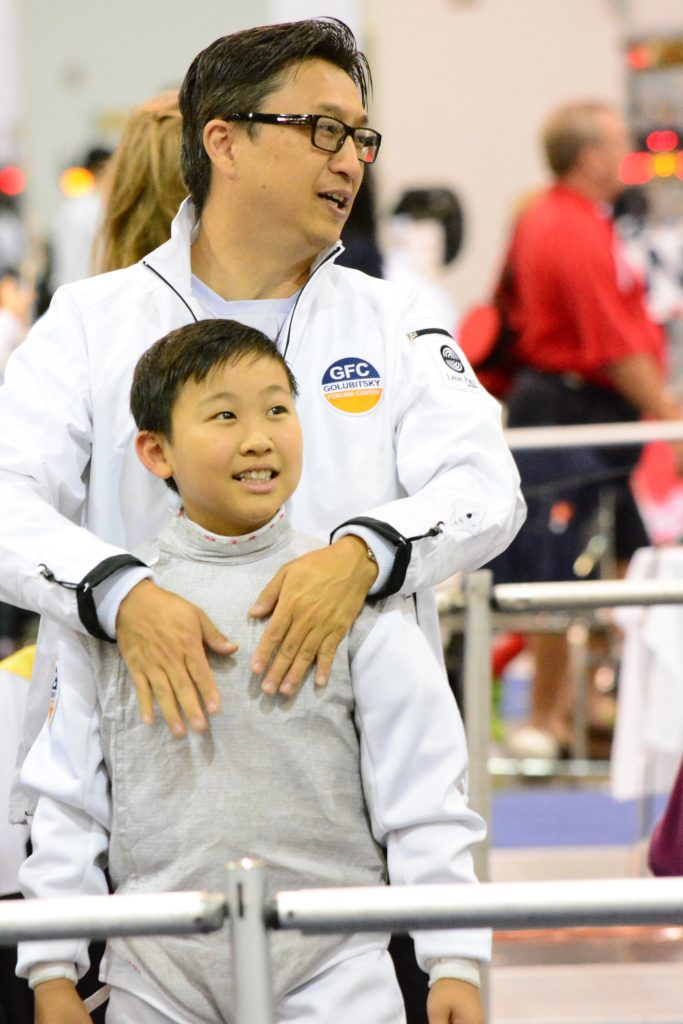
Jeon’s passion for music was nurtured in a similarly serendipitous fashion. Although he had been engaged in casual singing at church and other community gatherings, his family’s encouragement and his own curiosity led him to explore music more formally.
Jeon was particularly drawn to the classical voice, a discipline he discovered through visits to his cousins who attended the Orange County School of the Arts. Inspired by the school’s vibrant musical environment and its dedicated conservatory directors, he decided to audition with “Ave Maria.”
Choosing to focus on classical singing rather than an instrumental path, Jeon embarked on rigorous vocal training, eventually securing a place in the prestigious Classical Voice Conservatory at OCSA
His education in classical music provided him not only with vocal technique and performance experience but also with a deeper appreciation for the emotional and expressive power of music.
For Jeon, both fencing and music are not just extracurricular activities but essential components of his identity. Each discipline complements the other, with the precision and discipline of fencing paralleling the expressive and emotional depth of classical music.
“I’ve talked a lot with my father about this, but I think that while fencing and music are not the same—fencing is competition against someone, whereas singing is more about performing—there are similarities.” Jeon said. “The way you approach practice, repetition and focus is very similar in both.
“I’ve always struggled with performance anxiety in music, not so much in fencing, but treating the butterflies I feel when performing for an audience with the same mentality as I do when preparing for a match has always helped,” he added. “It makes merging those two feelings easier. So mentally, I think there’s a lot of overlap.”
“When he had to perform on stage and got nervous, Alexander said he just imagined himself fencing on the strip for his final medal bout,” said Allen Jeon, Alexander’s father. “And vice versa, when fencing while he was losing, he imagined performing in front of a large auditorium full of people to pump himself up.

“Being exposed to both the sport and art world I think gave him a unique perspective,” she added. “I think if he only pursued his music path or if he only had fencing to worry about perhaps his academics and fencing and music would not have achieved such high marks. Having the ability to bounce off from each unique experience I think helped Alexander grow, stay challenged and push himself and be successful in all three areas of fencing and music and academics.”
Jeon’s journey in fencing is marked by highs and lows that have shaped his approach to the sport. The pressures of competition and the rigorous demands of training began to weigh heavily on him.
During his early teenage years, Jeon’s commitment to fencing was tested as he struggled to balance the intense demands of the sport with his academic responsibilities and his growing interest in music.
“Although Alexander’s time management skills were that of a high level athlete at a young age, it definitely was a challenge to stay consistent or he would not have been able go far as he did,” Michelle Jeon said.
His typical days started around 6 a.m. He normally ran or trained for 30 minutes before getting dropped off at school around 7:30 am. His academic studies, juggling three to four Advanced Placement classes went through 2 p.m., and afterward, he had a whole new set of classes for his conservatory until 5 p.m.
He then drove one to two hours from Orange County to Pasadena or Burbank to take lessons and train from 6 p.m. to 9 p.m. three to four times a week normally. Around 10:30 p.m., he would start his academic studies when he got home finishing homework, studying sometimes to late hours for exams. The whole new cycle began each day.
“Due to long daily commutes, Alexander always read his textbooks, practiced his music and ate dinner on the road to save time,” Michelle Jeon said. “He always carried his music with him and practiced his singing in hotel rooms while traveling and in car rides, studied in hotel rooms and on airplanes during tournaments.
“I sometimes think Alexander lived a life of three high schoolers in one,” she added. “Toward the end of senior year, Alexander could not pursue both music and fencing to the full extent and decided to focus more on fencing, which meant he had to limit his singing competitions and give up on his lead role for opera.”
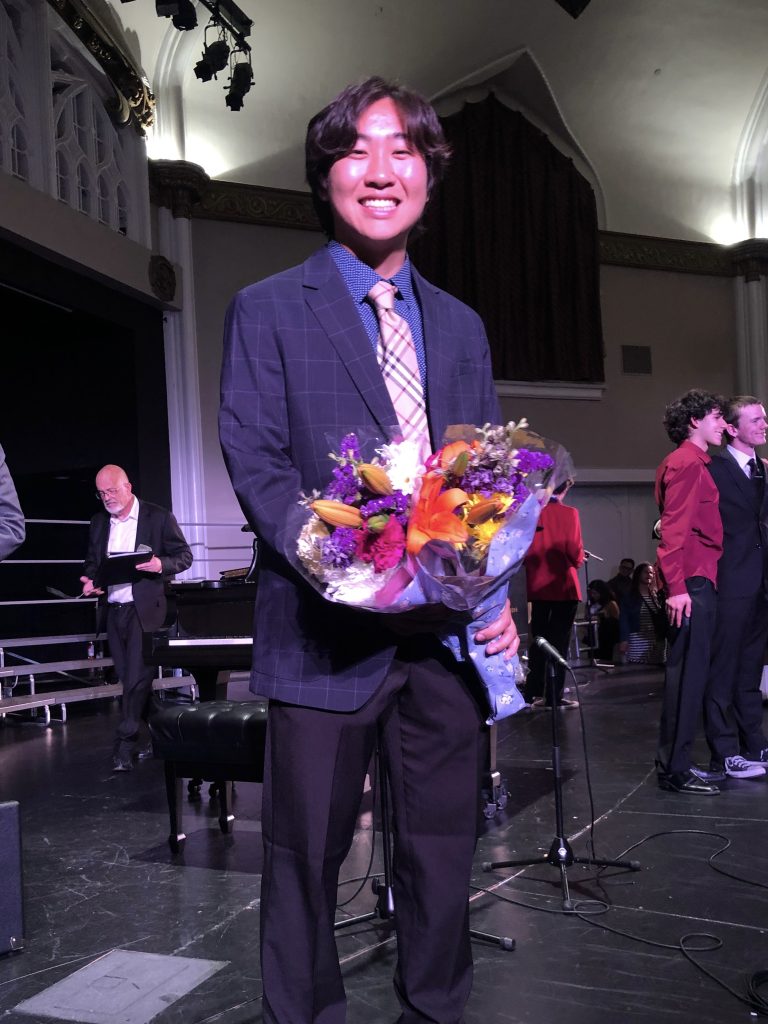
The constant juggling act between these commitments led to moments of doubt and frustration, culminating in a brief period where he stepped away from fencing altogether. This break from the sport was driven by a feeling of burnout and a desire to reassess his priorities and passion for fencing.
During this hiatus, Jeon reflected on what he truly loved about fencing. He realized that his initial attraction to the sport was not just about competition but also about the personal discipline, the strategic thinking and the joy of mastering a skill that fencing required.
“I found it too hard to juggle everything,” Jeon said. “I remember becoming very frustrated and having a lot of fights with my parents. Then, about half a year or a year after I stopped doing foil completely, I came to épée because I missed fencing.
“To me, trying a new weapon felt almost like a different sport—it was a breath of fresh air,” he added. “I started doing it more for recreation because it wasn’t the main focus at my club. It was so much more fun because it reminded me of how I felt when I first started foil at eight years old—as if I was doing it just for fun, not for results or college applications or recruitment.
“People who are passionate about something will always perform better and train harder,” Jeon added. “I remember I treated fencing very poorly and I couldn’t quite remember why I was doing it in the first place—the joy of competing, seeing my teammates and doing everything together had been lost to me.”
Switching from foil to épée, a change in fencing style and weapon, he embraced a fresh start in fencing, rediscovering the joy and excitement he felt when he began.
Foil is a lighter weapon with a more flexible blade, and points are scored by targeting the torso using precise, controlled thrusts. Épée, on the other hand, is heavier and stiffer, with a larger guard, and points can be scored by hitting any part of the opponent’s body.
“I remember the difference was that when I didn’t like fencing, whenever I would compete, I would always focus on the mistakes I made and how they would affect my rankings or even my future, which was silly because I was so young,” Jeon said. “Since the switch, I’ve treated it much more positively—even if I perform poorly in a tournament, if there were a couple of matches that I really enjoyed and felt I did great in, I try to selectively remember those joys and use them as the reason why I continue to fence.”
As Jeon transitions into his life at Stanford, he is eager to engage with the music scene on campus.
“I’ve had the privilege of watching him grow into a remarkable musician,” said Dr. Ryan Reithmeier who was Jeon’s music instructor and Conservatory director. “His dedication and passion for music are truly inspiring.
“At Stanford, he’s stepping into a world that will challenge and elevate his talents even further,” he added. “I have no doubt that his journey will be filled with beautiful harmonies and profound growth.”
One of Jeon’s immediate goals is to audition for Stanford Chamber Chorale. The chamber choir at Stanford is known for its rigorous standards and exceptional performance quality, focusing on a wide repertoire that ranges from classical compositions to contemporary pieces.
In the realm of sports, Jeon is working hard to qualify for the next main NCAA championship in 2025.

